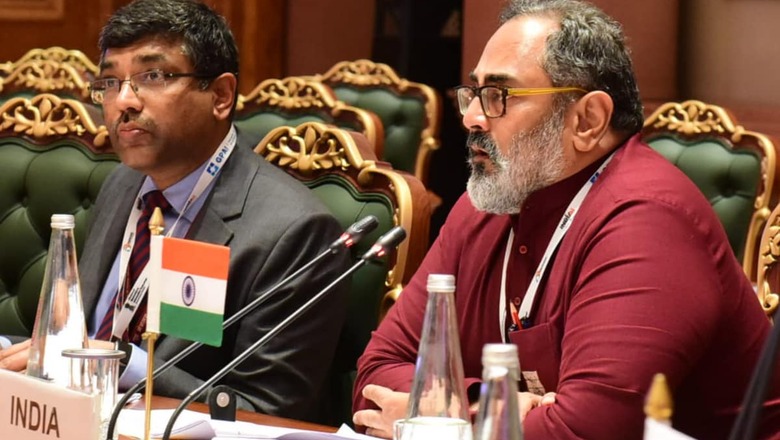
views
While both the Tokyo and the New Delhi Declarations express commitment to the OECD AI Principles and responsible AI development, they differ in their specific focus, goals, and actionable items.
???? #GPAI countries unanimously adopt the New Delhi Declaration.#GPAISummit2023 @GoI_MeitY @GPAI_PMIA @AshwiniVaishnaw @Rajeev_GoI @abhish18 Read it here???? pic.twitter.com/PeV4LSkngu
— Digital India (@_DigitalIndia) December 14, 2023
The Tokyo Declaration emphasises existing commitments to human-centred values and responsible AI development, celebrating achievements and outlining ongoing efforts. The New Delhi Declaration, however, adopts a more forward-looking approach, addressing the rapid advancements in AI and highlighting the need for global collaboration to ensure safety, security, and trust.
The Tokyo Declaration focuses on opposing unlawful uses of AI, welcoming new members, and encouraging multi-stakeholder collaboration. The New Delhi Declaration now sets more ambitious goals such as promoting equitable access to AI resources, establishing sustainable agriculture as a new priority, and strengthening GPAI’s role in global AI governance.
While the Tokyo Declaration focuses on revising GPAI’s Terms of Reference and encouraging financial support for operations, the New Delhi Declaration outlines more concrete actions. These include developing risk management frameworks for AI, promoting diverse and inclusive participation in AI development, and supporting projects aimed at ensuring equitable access to critical AI resources.
The Tokyo Declaration has a more subdued and celebratory tone, highlighting past achievements and reaffirming existing commitments. The New Delhi Declaration, on the other hand, adopts a more proactive and urgent tone, recognising the need for action and addressing emerging challenges in the rapidly evolving AI landscape.
When the Tokyo Declaration was adopted, the challenges and issues faced by the world regarding AI were completely different from what the world has been witnessing for the past 11-12 months. Understanding the current situation and the upcoming challenges or roadblocks, India has decided to play a key role in shaping the AI future. And during the GPAI Summit in New Delhi, several sessions were arranged where experts thoroughly discussed the present and the future of this technology.
So, the New Delhi Declaration underscores AI governance and risk management more than the Tokyo Declaration. It explicitly calls for a global partnership on artificial intelligence and promotes equitable access to AI resources. Sustainable agriculture is introduced as a new priority and the declaration prioritises safe, secure, and trustworthy artificial intelligence, addressing the risks of generative AI, which has taken the world by storm in a matter of few months.
The New Delhi Declaration builds upon the foundation laid by the Tokyo Declaration, taking a more proactive and ambitious approach to addressing the evolving challenges and opportunities presented by AI. However, both declarations reaffirm their commitment to responsible AI development, human-centred values, multi-stakeholder collaboration, and public-private partnerships. Additionally, both recognise the importance of international cooperation in governing AI.



















Comments
0 comment